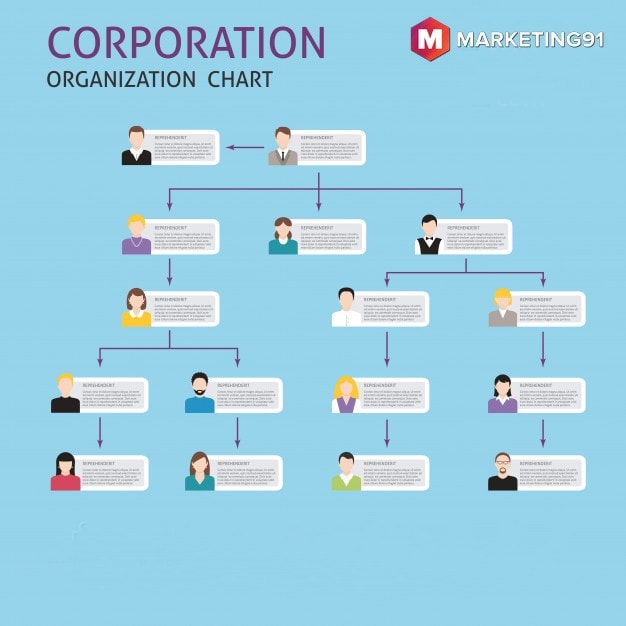Amidst our rigorous and tight work schedules, we all need some sort of a breather and space by delegating our work to our peers or subordinates.
It not only promotes teamwork and sharing the responsibilities but also motivates the subordinates when superiors involve them in the crucial tasks at the workplace.
But simple as it may sound; it is quite surprising that there are various Barriers to Delegation of the tasks and responsibilities even in a corporate setup. Many of the managers are reluctant to assign duties and responsibilities to the other team members and co-workers.
This mindset needs to be changed as it elevates the efficiency of the organization, increasing the productivity levels as well.
Discover how to overcome common barriers to delegation in your workplace.
Implementing regular training sessions for both managers and subordinates is a key strategy to overcome barriers to delegation. Such training enhances confidence and trust within teams, equipping employees with the necessary skills to handle delegated tasks effectively. By investing in professional development, organizations can foster a culture where delegation is embraced rather than avoided.
Additionally, setting up clear communication channels can mitigate issues stemming from misunderstandings or lack of information. When roles and responsibilities are explicitly defined and expectations are communicated, both managers and employees can approach delegation with greater confidence. This clarity can lead to improved efficiency and a more collaborative work environment.
Table of Contents
Top 10 Barriers to Delegation at a workplace
#1 Wish to perform tasks personally
This is one of the most significant Barriers to Delegation as many of the seniors and managers wish to complete all the work tasks and responsibilities personally. They feel that they will be in a better position to handle somewhat the same to their team.
Delegator also feels that handling all the crucial tasks by himself will give him better control over others in the organization and creates his positive image in front of the management. Plus it will also get him more importance by showcasing his skill set.
#2 High levels of insecurity
Insecurity is also one of the prime reasons due to which managers do not delegate their responsibilities to their subordinates, teammates, and even to the management trainees.
They have a constant feeling of fear and insecurity that if the other team members perform the task in a productive and better manner in his comparison, his position will be in danger.
Such mindset and tactics can also be termed as manipulation as the subordinates, and other members of the team are not given a fair chance to showcase their skills and expertise.
#3 Power and Authority
Many of the managers work with the constant mind perspective of having fully-fledged power and authority in their hands. They handle all the main tasks and responsibilities personally, and the ones that are not very challenging enough are handed over to their subordinates with little or limited information.
And this way, subordinates have to come to them again and again for inputs that make the delegator feel in command and authority. And this way, he can paint a positive picture of him in the eyes of top management.
#4 Lack of trust and confidence in subordinates
Yet another one of the crucial Barriers to Delegation is the superiors having a lack of trust and confidence in subordinates. Along with the factors of faith and trust, there is also a factor of risk involved as the superior cannot take the risk by delegating vital and crucial tasks in the hands of the subordinates.
If the subordinates are not capable enough to handle an imperative task, the superiors have to display the attitude of handholding and support for the completion of the task as teamwork.
The management also has to take necessary corporate actions such as training and development of the employees if it wants to retain them for a longer period and increase the efficiency levels of work.
#5 The organized structure of work
If the manager himself is not very capable and efficient enough to delegate the tasks and responsibilities to his team in an organized and structured manner, it acts as one of the Barriers to Delegation.
There are complete chaos and a lot of issues in such a scenario as no one of fully aware of his roles and responsibilities as the delegator is not competent enough to handle and manage his team effectively.
#6 Personal issues
Many of the managers have some of the other personal issues with some of the members of his team that result in the Barriers to Delegation.
Personal issues can be aroused owing to various reasons such as competition, insecurity, personal bias, and others. This can also be counted as an unfair method as it doesn’t provide a fair chance to others to prove their worth.
It is very vital that delegator should understand that personal and professionals cannot be mixed and intermingled at the workplace. And such petty issues affect the overall environment of the organization.
#7 Fear of failure
Many a time, the attitude of subordinates also acts as one of the Barriers to Delegation. They have a fear of failure and have a lack of confidence in taking over and effectively completing the tasks.
And that is the reason they shy away from taking more workload and responsibilities on their shoulders.
#8 No incentives
Quite several times subordinates and employees that are relatively new shy away from taking responsibilities owing to the lack of incentives and fruitful rewards from the organization.
Hence, it is very necessary for the management of the firm to keep the employees motivated by rewarding them with good pay packages and incentives.
#9 Lack of convenience
If there is a factor of lack of convenience and basic facilities for the employees to fulfill their tasks and responsibilities, they do develop a barrier in their mind to take additional responsibilities from their seniors.
An organization should provide basic facilities such as travel conveyance, good IT facilities, good infrastructure, and other such vital facilities.
#10 Organization size
Barriers to Delegation also result due to the size and scale of the organization. Small and medium scale organizations work a flat structure and hierarchy levels with no proper delegation structure, and authorities provided to the employees of the firm.
Whereas large scale organizations have too many layers and hierarchy levels that result in various issues such as insecurity, fear of losing power, authority, and more.
Conclusion
It is the main onus and responsibility of the management of the firm to formulate the rules and policies for the proper and effective delegation of tasks and responsibilities. It helps in increasing the productivity and efficiency levels of the firm.
Liked this post? Check out the complete series on Delegation




thank you have learnt alot though haven’t seen some references used in this article.